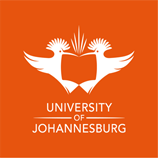
Vibrant, multicultural and dynamic, the University of Johannesburg (UJ) shares the pace and energy of cosmopolitan Johannesburg, the city whose name it carries. Proudly South African, the university is alive down to its African roots, and well-prepared for its role in actualizing the potential that higher education holds for the continent's development.
UJ has transformed into a diverse, inclusive, transformational, and collegial institution, with a student population of over 50 000, of which more than 3000 are international students from 80 countries. This makes UJ one of the largest contact universities in South Africa (SA) from the 26 public universities that make up the higher education system.
The vision of the UJ is to be "an international University of choice, anchored in Africa, dynamically shaping the future". The mission can be described as follows: "inspiring its community to transform and serve humanity through innovation and the collaborative pursuit of knowledge".
These are underpinned by four values, namely: imagination, conversation, regeneration and ethical foundation.
The six strategic objectives provide a focused means for realising the Vision, Mission and Values of the University as set out above. They further represent a re-working of the original UJ Strategic Thrusts 2020 in the context of a wider positioning of the University as "The Pan-African" Centre for Critical Intellectual Inquiry, with the primary goal of achieving global excellence and stature.
The six strategic objectives are:
Recognized as the country's second strongest brand, UJ offers world-class, internationally recognized academic programmes based on curricula informed by cutting-edge developments in both undergraduate and postgraduate education, and that are designed to prepare students for the world of work and for global citizenship.
Our curriculum is increasingly reflective of previously marginalized scholarship that talks to a transformation and decolonisation agenda, with Africa at its core.

An entry level qualification that covers the major knowledge fields in architecture. The programme focuses on a theoretical understanding of design and architecture in order to prepare students for further study and/or registration as Candidate Architectural Technologists.

The students graduating from this SLP should be able to apply project management tools, techniques and principles; coordinate, manage and execute operational projects within the stated scope, quality standards, cost and time in order to achieve the required deliverables in an operations or quality

This coursework Master’s Degree assists qualified social workers in advancing their counselling abilities in the field of clinical social work practice.

The primary purpose of the MSc minor-dissertation with coursework is to provide students with specialised advanced education and training while meeting the requirements of a specific research component so that students can master the required experimental and technological skills

In the course of one year of full-time Honours studies with UJ Philosophy, you will be provided with a solid grounding in Philosophy in cutting-edge modules. You will also complete an independent research essay over the year, with guidance provided by a supervisor.
© 2025 coursetakers.com All Rights Reserved. Terms and Conditions of use | Privacy Policy